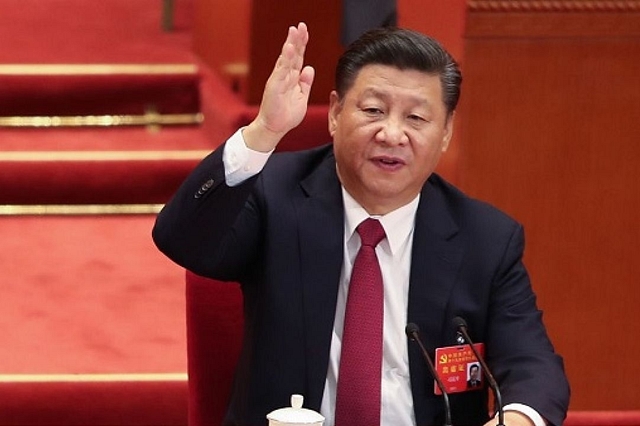
China Is Policing Moral Values Through A National Citizen Reputation Rating System
China is rapidly developing a social credit system by which its people will be ‘incentivised’ to conform to certain behavioural norms ‘prescribed’ by the government.
China is using such ideas for its grand social experiment to make dissent impossible and assent inevitable.
China is where even bizarre fiction becomes the reality. That is true not only of entrepreneurial dreams of manufacturing for the world at low prices but also for dystopian novels like 1984 and Brave New World. China is rapidly developing a social credit system for its populace and by 2020, it aims to put in place a fully-functional socio-economic framework to rate citizens on their social reputation.
It is worse than it sounds. Most of us are familiar with the rating system. Uber/Ola ask us to rate drivers after every ride and such ratings decide if the driver is high or low on the pecking order if a customer requests a trip. A ride request is always sent first to the best-rated drivers in the area and vice versa. Thus, economic incentives dictate behaviour or commonly called ‘customer service’. Drivers also rate passengers, and low-rated customers do not often get rides as often as they would want. A similar model holds true for most of the gig economy and conventional businesses like banks too.
Your Uber rating does not impact your credit score or your Zomato rating or the Amazon Prime subscription, and each of them is separately boxed in watertight compartments.
But China wants to address this gap and intends to create an integrated national reputation system that will encompass the full range of socio-economic activities of its citizens. Each citizen will have a score, which will be the aggregate of various activities done over a lifetime. For example, if a person donates his blood, that activity will be recorded under the system and his score will improve. He will also be entitled to heavy discounts on public services like bus transport and education.
On a smaller scale, an app that rewards users with points for spending time reading ‘inspirational’ quotes from Xi Jinping and viewing the President’s travels and speeches has gone viral in the country. These points can then be redeemed similarly for future incentives.
Thus the Chinese state will not only decide what a good moral act is and what is not, but also what kind of information citizens should consume and for how long. Thus, a compliant citizen who adheres to the ever-changing social and moral codes of the authoritarian government will enjoy extensive social benefits. Any dissent and transgression of the state-sponsored moral system will attract a penalty and lower the score. It should be noted that the moral values are not issued through a democratic process but is wholly dependent on the arbitrary will of the Communist Party.
With Xi Jinping amending the Chinese constitution and allowing himself presidency for as long as he wishes, it is not difficult to predict the ultimate decision-maker in Chinese society. Also, such strict enforcement of uniform moral values is not new to China. It dates back to the time of Confucius, the great Chinese philosopher of 6th century BC. Xi Jinping, who is an avid reader of Chinese classics, leaves us no doubt as to the genesis of this system.
This credit score will be visible to not only the government but also other citizens, small businesses and corporate entities. Thus, a person who has been jailed even for a minor offence can be easily boycotted by society at large. He probably will not be invited to social functions and also charged more-than-normal prices for the same goods by the shopkeepers. It is also not clear if the scores of one family member will impact the scores of others in the family. Will the sins of the father pass down to sons and daughters?
This reputation system harnesses the power of technology to such an extent that it dismantles the whole idea of privacy. There remains no effective distinction between the public and private lives of Chinese citizens.
In 2017, Richard Thaler won the 2017 Nobel Prize for his contributions towards ‘behavioural economics.’ He championed the idea of “nudging” people or subtly reinforcing positive behaviour in a group of people through subtle changes in government policy. For example, asking people to do things such as saving for a retirement plan that is in their long-term interest.
China is using such ideas for its grand social experiment to make dissent impossible and assent inevitable. There are already media reports suggesting that would-be-air travellers in China were prevented from making the trip 17.5 million times last year (2018) for “social credit” offences like not paying taxes and fines.
What is the point of all this, you might ask? One obvious reason is this is how authoritarian governments function. But it is more complicated than that.
The tradition of Chinese ethical thought is centrally focused on how one ought to live. “Confucian conception of a good human life is centred around relationships – within the family, within friendship, and also within a society in which one aspires to serve a government by advancing the mission of securing the material and moral welfare of the people,” says SEP on Chinese ethics.
Thus, if everyone pays taxes and donates blood and is inspired by the same moral dictates, then you have a harmonious society where everyone is just the same. With this kind of homogeneity, the government does not have to exercise coercive state power to enforce norms because there is no need for such actions.